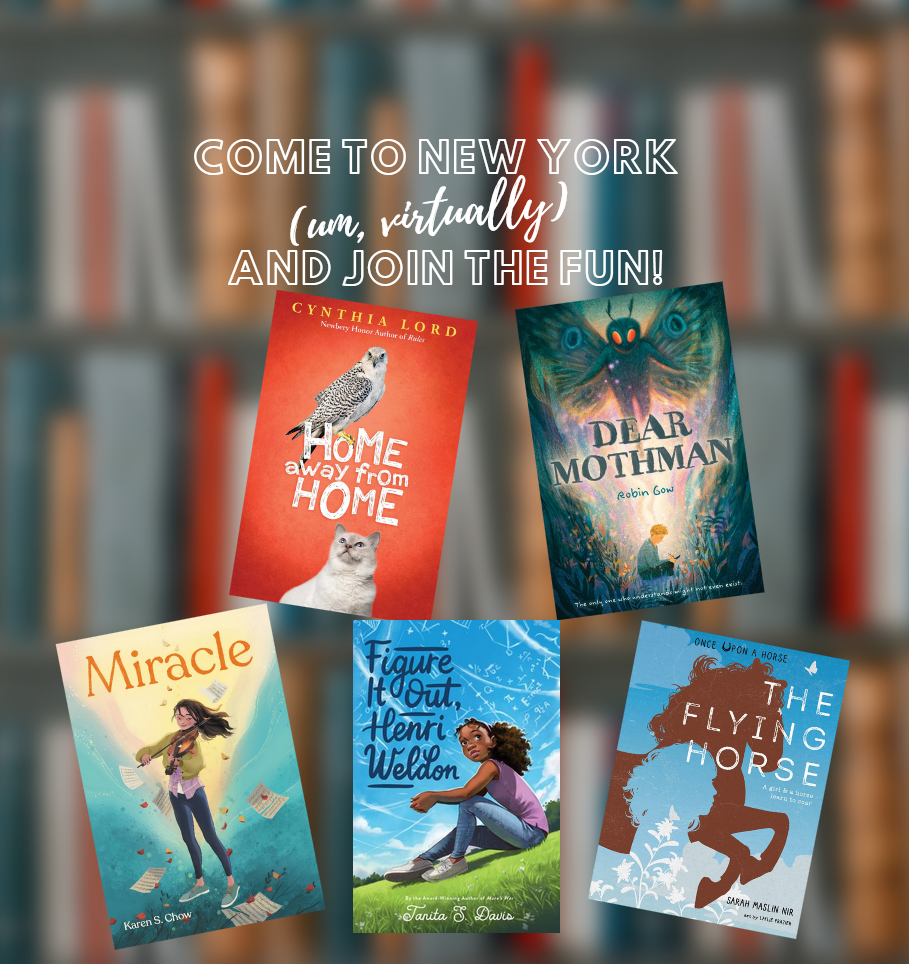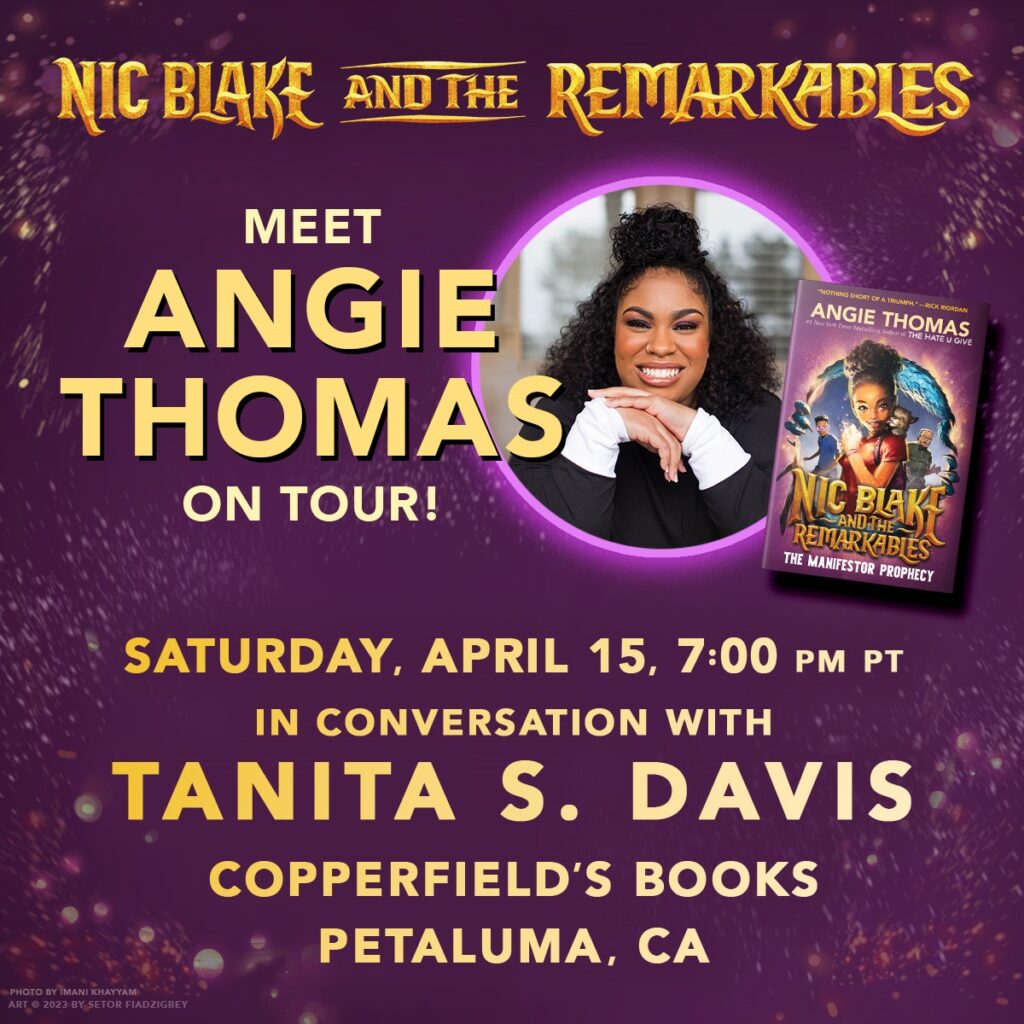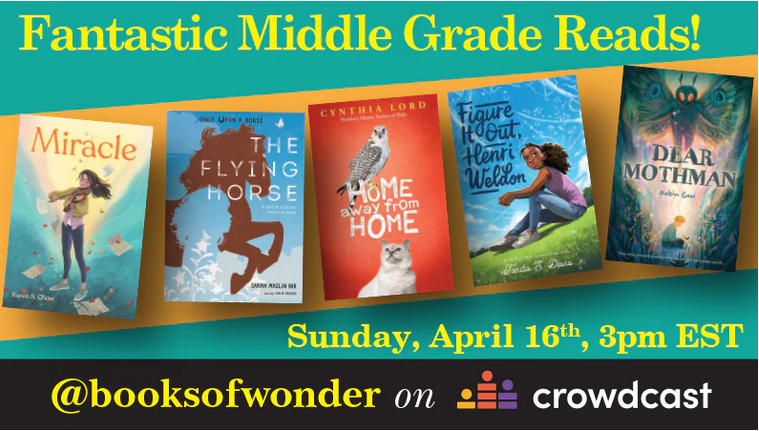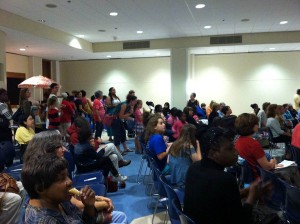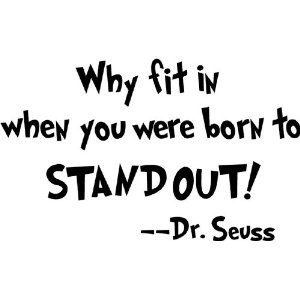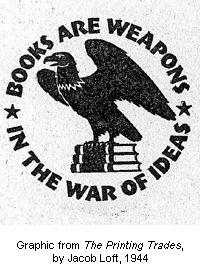 She’s a woman of many enthusiasms. Change Ringing. Planes. Folklore. Traveling. Punting. Time machines.
She’s a woman of many enthusiasms. Change Ringing. Planes. Folklore. Traveling. Punting. Time machines.
Okay, I made up that last one, but her books so far all take place in the long-ago and far away, and the detail with which she writes them convinces me there’s something fishy about the reason she now lives in Scotland; I’m pretty sure she’s found a time machine. A brilliant student of folklore and myth, archeology and history, Dr. Elizabeth Gatland neé Wein — which is actually her real, non-writing name — lives what appears to be a pretty blissful live in the gorgeous city of Perth here in Scotland with her husband, two cute kids, and random wild things.
Wonderland is really really privileged to take a moment of her copious free time (apparently she works less than a sleeping hamster, according to her daughter’s nightmares) and invite her to share a bit about her life and her work and her awesome books.
 Finding Wonderland: Hi, Elizabeth! First of all, your website says you were “born in New York City and grew up in England, Jamaica, and Pennsylvania.” You’ve also lived in both England and Scotland — how have the places you’ve traveled and in which you’ve lived informed your writing, or have they? How are you liking Scotland? Will you, as people always ask Tadamack, ever write a “Scotland novel?”
Finding Wonderland: Hi, Elizabeth! First of all, your website says you were “born in New York City and grew up in England, Jamaica, and Pennsylvania.” You’ve also lived in both England and Scotland — how have the places you’ve traveled and in which you’ve lived informed your writing, or have they? How are you liking Scotland? Will you, as people always ask Tadamack, ever write a “Scotland novel?”
Elizabeth E. Wein:Wow, that’s at least three questions in one!
The places that I’ve traveled always inform my writing. The Winter Prince, my first novel, is set in the place I used to live in England (Artos’s estate at Camlan is superimposed on our house in Mottram St. Andrew in Cheshire, and I am fully willing to believe that there is an undiscovered Roman villa buried beneath the cabbages in what was our back garden). The exotic setting of the subsequent books has given me more of a chance to draw on my Jamaican childhood.
I kind of ran wild in Jamaica. We ate everything and anything that grew—the countless trees in our untended garden produced at least 12 different kinds of tropical fruit, and I thought nothing of climbing on a neighbors’ roof to get at the varieties we didn’t have. The neighborhood kids all had routes to each other’s gardens through the fences and down the gullies (the ubiquitous Jamaican riverine storm drains). Some pretty desperate and hungry homeless people used the gullies to hang out in, too, and chopped fruit out of our gardens with machetes, and once there was a knife fight which ended with the arrival of the police, and at times rival kids would hurl rocks at each other—I was one of the few white kids around but rather blissfully unaware of this difference, since the more obvious difference was whether or not you had a garden in the first place. All of which is to say that my child hero Telemakos’s clandestine, scrappy, but privileged early life is in large part based on my own.
I had only been living in Scotland for a year when I wrote The Sunbird, the first book in which Telemakos plays a starring role, and in writing it I used a lot of my recent tourist experience climbing around in castles. As I mention in the note on the back page of the Firebird paperback edition of Sunbird, Britain was under a pretty serious quarantine while I was writing the book. So political and cultural reality were being very much reflected in my fiction.
Another way my life in Scotland turns up in my fiction is in Telemakos’s closeness to animals. I see a lot more wildlife here than I ever have before—not just garden birds and squirrels, but seals and dolphins, osprey and heron, roe deer and red deer and foxes and leaping salmon. The seals swim right into the middle of the city of Perth, following the salmon. A buzzard—not an American vulture, but the European hawk buteo buteo, which looks like a small golden eagle—killed and devoured a pigeon in our front garden this morning. Also, having little kids around has driven me to the local petting zoos and safari parks. When we play a “Safari Trivia” game that my son got for his eighth birthday, I’m the one who says, “Go on. Ask me a hard question about lions. Go on, ASK me something about lions I don’t know.”
I adored Scotland when I first moved here, but lately I am finding it Just Too Cold. I am constantly cold. It is kind of grinding me down. Apparently the lions at the local safari park grow long winter coats and enjoy frolicking in the snow. But unfortunately the park is closed in winter so I haven’t been able to witness this.
A Scottish novel… I kind of feel like Jane Yolen keeps getting there first! Telling an original Mary Queen of Scots story is as difficult as telling an original Arthurian story. The honest answer is I don’t know. Telemakos’s father, Medraut, who is also the narrator and anti-hero of The Winter Prince, is supposed to have been born and raised in Orkney. I suppose I could go back and tell the story of his childhood at some point.
 I know there are a few readers out there who wouldn’t mind another story about Medraut. (We know WE certainly wouldn’t!)
I know there are a few readers out there who wouldn’t mind another story about Medraut. (We know WE certainly wouldn’t!)
FW: What were the first words that you wrote of Telemakos’ story? Did they change, or stay the same?
E. Wein: A.) 19 July, 1999: “When I was twelve, our kingdom had been sealed off from the rest of the world in a self-imposed quarantine for the past five years.”
The first person narrative did not work for Telemakos. I have tried it again since, and it just isn’t right for him. He is not self-conscious enough to pull it off (some would say Goewin isn’t, either). He is not boastful, he’s not self-deprecating, and he doesn’t have any guilty history he wants to get off his chest; you have to have some combination of those, I think, to want to talk about yourself.
So, two days later, I made another attempt:
B) 21 July, 1999: “Telemakos could not remember a time when his aunt had not lived in his grandfather’s household.”
After a few pages of this effort is the note: “Jeepers, how am I going to make this interesting?”
C) 1 September, 1999: “Telemakos lay among the aloes at the edge of the fountain in the Golden Court. The marble lip of the fountain’s rim just cleared the top of his head, and the imported soil beneath his chest was warm and moist. He was comfortable. He could move about easily behind the plants, for the sound of the fountains hid any noise he might make, and the black and white colobus monkeys that were chained there helped to disguise his movements. Telemakos was watching his aunt.”
For the sake of comparison, here is the actual first paragraph of The Sunbird, published in 2004:
“Telemakos was hiding in the New Palace. He lay among the palms at the edge of the big fountain in the Golden Court. The marble lip of the fountain’s rim just cleared the top of his head, and the imported soil beneath his chest was warm and moist. He was comfortable. He could move about easily behind the plants, for the sound of the fountains hid any noise he might make. Telemakos was watching his aunt.”
I wrote the whole of the first chapter of The Sunbird in September 1999, and then I literally began to feel sick whenever I thought about what was going to happen to Telemakos at the salt mines… and I had to stop. I did not start work on the second chapter till 6 March 2001 (I have a good excuse: in early 2000 we moved to Scotland and I had a baby). But once I got going again I used the first chapter almost entirely as I originally wrote it.
That’s actually pretty awesome — in a thoroughly unawesome way — to be so convinced about what’s going on with your own character that it literally makes you ill. It WAS a horrible, rough scene, too. {And if you haven’t picked up this book yet, we’re certainly not going to TELL you what happened. Read. The. Book. Go on, now.}
FW: Many of our readers and fellow bloggers and writers love to know about a writer’s process—and we’d love to hear about yours. How do you start your writing day? What feeds your creative process, and what do you do when you get stuck? What part do creative things like flying and change ringing play in your writing process?
 E. Wein: I would say that the most vital nutrient to my creative process is coffee. It has become something of an inside joke with myself, and you can spot it in my books. I tend to use it to symbolize both sovereignty and sex (!!!). Medraut, Artos’s (Arthur’s) son, symbolically sells his kingdom for a cup of coffee. In the story I’m writing now, “drinking coffee with Gwalchmei” has become a sort of euphemism for sex. Telemakos is a coffee lover but is rarely allowed it; in The Empty Kingdom, the morning after his guardian tells him “You are no longer a child,” the queen of Himyar leaves coffee out for his breakfast (AND it is hinted that she fancies him, too!). I am making myself laugh as I write this and think about it (a cup of coffee is standing protectively guarded between my wrists as I type)—coffee is what you sip from the Holy Grail.
E. Wein: I would say that the most vital nutrient to my creative process is coffee. It has become something of an inside joke with myself, and you can spot it in my books. I tend to use it to symbolize both sovereignty and sex (!!!). Medraut, Artos’s (Arthur’s) son, symbolically sells his kingdom for a cup of coffee. In the story I’m writing now, “drinking coffee with Gwalchmei” has become a sort of euphemism for sex. Telemakos is a coffee lover but is rarely allowed it; in The Empty Kingdom, the morning after his guardian tells him “You are no longer a child,” the queen of Himyar leaves coffee out for his breakfast (AND it is hinted that she fancies him, too!). I am making myself laugh as I write this and think about it (a cup of coffee is standing protectively guarded between my wrists as I type)—coffee is what you sip from the Holy Grail.
But what does that have to do with my writing process?
I feel like such a charlatan these days. Over the past few years I haven’t had a process; I do laundry and fool around on the Internet and drink coffee and do the garden and then maybe about eleven o’clock in the morning I panic and move to a different room and write a page and then make a sandwich. I run up to the kids’ school three times a day because my eleven-year-old daughter never remembers to take her glasses or her lunchbox. This morning I sat watching the Raptor Show in the front garden for two solid hours. (I took a lot of pictures, too, but they are on the film camera and might take a while to print.)
This year we have installed a so-called “summerhouse” in the garden. It is a glorified shed, but it is a MAGIC SUMMERHOUSE. It transports you to Walden Pond and it MAKES YOU WRITE. So lately, whenever I want to work, I take a cup of coffee out to the summerhouse and sit there and I get tons of work done (I am sitting there now). I write longhand in spiral bound notebooks and transfer this, chapter by chapter, to the computer. I still have a sense that paper is more permanent than electronic print, and I like to see my first drafts written down.
This is only true for fiction. I blog away at the keyboard like anyone else.
I try to carry a notebook with me wherever I go. I have conversations in my head between characters and if I don’t write them down right away I tend to forget them. I ran a writing workshop last weekend and one of the people who came said that she keeps bathtub crayons in her shower so that she can make notes while she’s showering—what a great strategy, as the shower is where I get some of my best ideas! Note to self: Must buy bathtub crayons.
Obviously flying and change ringing don’t have much to do with ancient Ethiopia, but I have written four (I think) short stories about flying. The most recent will be included in Sharyn November’s Firebirds Soaring (Firebird Books, Spring 2009). It’s about a girl who disguises herself as her dead brother and flies fighter planes in the Battle of Britain in 1940. Of all the short stories I have ever written, it is my absolute favorite.
 I’ve got a short story about change ringing in The Horns of Elfland, edited by Ellen Kushner, Donald G. Keller, and Delia Sherman (Roc/Penguin, 1997). And there is an unpublished novel, the old “manuscript under the bed,” which has change ringing as a theme. But the problem with writing about change ringing is that it’s so complex and arcane that you have to spend pages and pages explaining what’s going on, or else leave the reader in limbo not understanding that end of things (as Dorothy Sayers does in The Nine Tailors), and that doesn’t really work in a children’s book. The symbolism of bells are wonderful, though—they ward off thunder and the devil, they warn of fire and flood and invasion. They’re always female (a bell is a “she,” not an “it”) and they all have individual names. Some of them are also very old. I used to thrill to ring a certain bell in Magdalen College, Oxford, because it predated Columbus’s discovery of America. Most musical instruments that old are in museums, not in public use.
I’ve got a short story about change ringing in The Horns of Elfland, edited by Ellen Kushner, Donald G. Keller, and Delia Sherman (Roc/Penguin, 1997). And there is an unpublished novel, the old “manuscript under the bed,” which has change ringing as a theme. But the problem with writing about change ringing is that it’s so complex and arcane that you have to spend pages and pages explaining what’s going on, or else leave the reader in limbo not understanding that end of things (as Dorothy Sayers does in The Nine Tailors), and that doesn’t really work in a children’s book. The symbolism of bells are wonderful, though—they ward off thunder and the devil, they warn of fire and flood and invasion. They’re always female (a bell is a “she,” not an “it”) and they all have individual names. Some of them are also very old. I used to thrill to ring a certain bell in Magdalen College, Oxford, because it predated Columbus’s discovery of America. Most musical instruments that old are in museums, not in public use.
I have all kinds of tricks for getting around writer’s block: drawing pictures of my characters, acting out a scene with myself, writing out the problem in a kind of conversation with myself. Taking the project to a café or a beach or a public library and working on it without the usual distractions sometimes helps. Every writer should have a summerhouse.
(Definitely!!!)
FW: Aksum is a compelling and dramatic setting for the story of Medraut, Goewin, and Telemakos. How much of the setting and society is based on verifiable history, and how much was imagined? What attracted you to that setting?
 E. Wein: Goewin’s story, A Coalition of Lions, is as much a story of Aksum as of Goewin. The society Goewin describes more accurately resembles medieval Ethiopian society than that of ancient Ethiopia, which we don’t know a lot about, but the history is certainly verifiable. Where I have to make things up is in the social mores rather than in the furnishings or the food.
E. Wein: Goewin’s story, A Coalition of Lions, is as much a story of Aksum as of Goewin. The society Goewin describes more accurately resembles medieval Ethiopian society than that of ancient Ethiopia, which we don’t know a lot about, but the history is certainly verifiable. Where I have to make things up is in the social mores rather than in the furnishings or the food.
The setting was originally suggested to me by an uncle, Roger Whitaker, who had been in the Peace Corps in Ethiopia in the late 1960s. But what really attracted me to it—indeed, what drove me to ask Rog to suggest a North African or Middle Eastern setting in the first place—was the desire to introduce some diversity to the books.
A lot of my characters are based on real people. Imagine my surprise to discover this afternoon that Abreha, the enigmatic king of Himyar who gives Telemakos such a hard time in The Mark of Solomon, has got his own Wikipedia entry. Most of the historic data matches up. But who knew he had a wife named Raihäna? And it says he abducted her, too, which I suppose should not come as a surprise somehow. The source for this information was published in 2007, the same year as The Lion Hunter, in which my version of Abreha is married to a woman, invented by me, named Muna (who happens to be Telemakos’s second cousin). When I discovered Raihäna, do you think my first thought was, “Oh, I got the name wrong?” (Sabaean girls’ names being hard to come by, most of the female characters in The Mark of Solomon have modern Arabic names). No—it was more along the lines of, Oh, so Muna dies and Abreha gets married for a third time, the slimedog.
Hah! I can totally see that one, too. Eew.
FW: What made you decide to tell the story of “post-Arthurian” events from the viewpoint of Medraut, Arthur’s illegitimate son who is often portrayed as untrustworthy if not downright evil?
E. Wein: It started with Hamlet, really. Medraut is really an extension of Hamlet. The king’s nephew and ALSO his son, get it? With a bit of a taboo crush on his mother? Eh, I was deeply in love with Hamlet. What can I say. I was 15, and within a year my mother had been killed in a car accident, my adored younger brother was in a coma and permanently paralyzed, I had just discovered that my father was gay. All of that together took some dealing with at fifteen. I thought I was the reincarnation of Hamlet.
I had just got over The Lord of the Rings and I was also obsessed with King Arthur—a natural progression, perhaps, from The Lord of the Rings, which had been my obsession at fourteen—the difference being that now I wasn’t stuck reading the same novels over and over, because there was so much written about King Arthur (my English teacher recommended both Edmund Spenser’s Faerie Queen and Bernard Malamud’s The Natural). And it kept coming—when I was fifteen, Susan Cooper’s Dark is Rising series, Mary Stewart’s Merlin series, and Gillian Bradshaw’s Arthurian trilogy were all half-finished. John Steinbeck’s Acts of King Arthur and His Noble Knights was released that year. The Mists of Avalon hadn’t been written yet. I had a theme.
Mordred was the most Hamlet-like of Arthur’s family, I suppose. I hated him quite vehemently at first, and, like Guinevere, was eventually seduced. My Medraut would point out that he, too, is considered untrustworthy by many people.
FW: Which traditional mythological cycles–besides the Arthurian legends that most readers know about—were a source of inspiration for your series? What literary and historical sources were most useful or compelling to you in writing these books?
 E. Wein: If anyone asks me where I get my ideas, I just answer Star Wars. (HAH!) Actually, I had mapped Lleu and Goewin to Luke and Leia well before anyone knew that the latter two were supposed to be twins as well. And then there’s the matter of Luke’s hand getting chopped off (as a teenager, I was disgusted that he immediately got a new one. Where’s the melodrama in that?). And isn’t Ras Meder obviously Darth Vader? (HAH! Seriously, I just had NOT put the two together… but, now…whoa.)
E. Wein: If anyone asks me where I get my ideas, I just answer Star Wars. (HAH!) Actually, I had mapped Lleu and Goewin to Luke and Leia well before anyone knew that the latter two were supposed to be twins as well. And then there’s the matter of Luke’s hand getting chopped off (as a teenager, I was disgusted that he immediately got a new one. Where’s the melodrama in that?). And isn’t Ras Meder obviously Darth Vader? (HAH! Seriously, I just had NOT put the two together… but, now…whoa.)
To be fair, part of the reason I loved “Star Wars” and “The Empire Strikes Back” as a kid was because they both so obviously drew on the same archetypes, themes, and cycles that I loved. Lleu the Bright One, the narrator Medraut’s young foil in The Winter Prince, is named after Lleu Llaw Gyffes, the hapless sungod figure of the Fourth Branch of the Mabinogion (which is the 13th century Welsh legend that Alan Garner used as his basis for The Owl Service, another of my favorite books). It was inevitable, perhaps, that I should try to blend the story of Lleu Llaw Gyffes with Arthurian legend. The Mabinogion, which means simply “Collection of Tales,” is divided into two parts. The first four stories, or “branches,” are referred to as the “native” tales—they’re straight-up thirteenth century Welsh. The rest of the stories are Arthurian. They bear some strange resemblances to the French Romances—the Welsh “Peredur” and Chretien de Troyes’s “Perceval” have many similar elements, but some scholars believe (and it seems to me) that both are based on an independent tale rather than either one being influenced by the other.
So I made up children for Arthur and Guinevere, who were canonically childless. (In my very earliest version of the story, Merlin magically engineers this.) In my own authorial role as Merlin (or God), I gave Arthur and Guinevere legitimate children, twins, Goewin and Lleu, named after characters in the fourth of the Mabinogion’s “native” tales—tales which, it seemed to my naïve fifteen-year-old self, a historic Arthur and his wife would surely have known well. I love the name Lleu—a word so ancient it is basically untranslatable, but which most likely means light—the Bright One.
Tolkien is there in the background, too; when I reread The Lord of the Rings a couple years back (when the films came out), and I got to the scene where they’re fleeing the mines of Moria, I was amazed at how much it reminded me of the scene in The Winter Prince where the copper mines at Elder Field collapse. Not in terms of plot so much as in the way the rhythm of the scene plays out. Here’s the Tolkien:
“With a terrible cry the Balrog fell forward, and its shadow plunged down and vanished. But even as it fell it swung its whip, and the thongs lashed and curled about the wizard’s knees, dragging him to the brink. He staggered, and fell, grasped vainly at the stone, and slid into the abyss. “Fly, you fools!” he cried, and was gone.”
Compare Medraut’s words (my words):
“For answer—it was an answer—came a low rumble and clatter from deep in the tunnel, and the lower shaft collapsed. It sealed itself from the roots outward, as though some starved inner core hungered to consume the entire hillside. I have killed another friend, I thought, buried alive six men; and so imagined the abyss closing around me, and plunged into the devouring darkness.”
I certainly didn’t intend any similarity, but I think the general tone is very evocative of Moria to anyone familiar with the scene. (Seriously. Wow.)
I won’t go into the profound influence T.S. Eliot’s “The Waste Land” has had, and continues to have, on my writing. But it’s there, very deeply, in all the books.
FW: Surprisingly, you visited Ethiopia after writing your first two books. What was the most memorable part of those travels? What of your visit will you incorporate into later books, if anything?
E. Wein:The whole thing was eye-opening and unforgettable, but certainly the most exciting part for me was being in the city of Aksum and visiting Debra Damo, the clifftop monastery that features in A Coalition of Lions. Mind you, I did not get to go inside, because like Goewin, I am a woman… Unlike Goewin, I am not princess of Britain and friends with the Aksumite emperor. I had been taking notes like crazy all through our two-week trip, and during our tour of the ancient necropolis in Aksum (which also features in Coalition), my uncle Rog said, “Why aren’t you taking notes?” My aunt Susan answered for me: “She already knows all this.”
Rog called it “retro-research,” a term I like. I did not feel that I’d got anything drastically wrong, but I did feel like I’d left things out. Little details, like the green leaves strewn about the floor during the coffee ceremony, or the way all the kids walk hand in hand, or the sticks that the shepherd boys carry across their shoulders. The Lion Hunter and The Empty Kingdom have more of these minute details included.
 I really felt that there is a great effort and excitement alive in Ethiopia—that its people are absolutely determined to better themselves. You don’t get this feeling when you watch the shows the media gives us here in the west, you just feel that they’re all starving or ill or at war. The feeling that I got was that they are all working, inexhaustibly and in spite of the worst odds and conditions possible, to build a country they can be proud of.
I really felt that there is a great effort and excitement alive in Ethiopia—that its people are absolutely determined to better themselves. You don’t get this feeling when you watch the shows the media gives us here in the west, you just feel that they’re all starving or ill or at war. The feeling that I got was that they are all working, inexhaustibly and in spite of the worst odds and conditions possible, to build a country they can be proud of.
I would love to take my children there.
A more detailed description of my trip is up on my web site. If anyone would like to comment on it, the same story (but without pictures) is up on my blog.
FW: THE MARK OF SOLOMON is part political thriller, part family story, and thoroughly engrossing. Do you think you might ever revisit this world and tell a story from a female point of view? What do you think eventually happens to Athena?
E. Wein: I have, in fact, recently started writing a thing from Athena’s point of view. (Oh, yaaaay!) She’s about twelve in this venture; it takes place back in Aksum. I told myself that the book I’m working on now (NOT this one) “ties everything up,” so technically Athena’s story isn’t dependent on what goes before. And the characters we’ve come to know and love are just so grown up by the time Athena is twelve, you know?
I have always imagined her as becoming a Vet. (Partly because it’s what my daughter wanted to be for a long time, and partly because it makes sense.) She keeps homing pigeons.
It is fun making up babies for everybody so she can have a crowd of cousins!
FW: When THE EMPTY KINGDOM released this year, you introduced many of your American readers to an organization called Ethiopia Reads. Please tell us a little about how you discovered that organization, and what prompted you to get involved?
 E. Wein:I’m only tangentially involved with Ethiopia Reads, in that I promote it whenever I get a chance—and of course make donations, both in books and in US dollars, when I can. Ethiopia Reads, formerly known as the Ethiopian Books for Children and Educational Foundation (EBCEF), was celebrating the First Annual Children’s Book Week in Ethiopia when I was there. (Here’s a the full history of the organization.) I got a very brief look at the organization in action On Site—although the actual library was closed and they were in a marquee in a public square to generate some publicity at the time.
E. Wein:I’m only tangentially involved with Ethiopia Reads, in that I promote it whenever I get a chance—and of course make donations, both in books and in US dollars, when I can. Ethiopia Reads, formerly known as the Ethiopian Books for Children and Educational Foundation (EBCEF), was celebrating the First Annual Children’s Book Week in Ethiopia when I was there. (Here’s a the full history of the organization.) I got a very brief look at the organization in action On Site—although the actual library was closed and they were in a marquee in a public square to generate some publicity at the time.
I found out about Ethiopia Reads through Jane Kurtz (www.janekurtz.com), the author of over 25 books for children and educators, many of them set in Ethiopia. She grew up there (her parents were missionaries) and she was one of the “first readers” for several of my books, a great help to me in spotting cultural or geographical bloopers.
Here’s the history of the project. Jane became involved when Yohannes Gebregeorgis, a native of Ethiopia, enlisted her help. He’d been taught in high school by Peace Corps volunteers—exactly what my uncle and aunt, Roger and Susan Whitaker, had done in Ethiopia—and came to the United States as a political refugee, took a master’s degree in library science and became a children’s librarian. The dearth of books available in any Ethiopian language in his own San Francisco library, despite a large population of Ethiopians there, spurred him to organize the non-profit Ethiopia Reads in 1998. Jane and Yohannes set about publishing a picture book for Ethiopian children in 2002. It’s called Silly Mammo and it is the first ever bilingual book in both English and Amharic, as well as being one of the few books at all published in any Ethiopian language. The book was used as a fundraiser, and after six years and some huge amount of further fundraising effort, 15,000 books were shipped to Ethiopia and in 2003 became the basis for the Ethiopian Children’s Book Center, the first free library for children in Ethiopia’s capital Addis Ababa, a city of more than three million people.
In their own words, “The main purpose of Ethiopia Reads is to improve literacy and create a culture of reading in Ethiopia, in order to bring hope, vision and educational skills to this generation of Ethiopian children.”
In the last month Yohannes Gebregeorgis has been named a “Top 10 Hero of the Year” by CNN, out of more than 3,000 individuals nominated by viewers throughout the year. The full story is here, and you can vote for Yohannes to be named THE Hero of the Year over here.
This is pretty time sensitive, as the The Top 10 Heroes will be recognized in CNN’s “All-Star Tribute” to air on Thanksgiving Day, so vote now!
FW: Now that THE MARK OF SOLOMON duo is completed, we know you’re not just coasting on your wings. Can you give us a sneak peek at what you’re working on now? Will you include change ringing or flying in what you publish next?
E. Wein: The big project at the moment is The Sword Dance, which is supposed to wrap up the Arthurian/Aksumite cycle that I tend to call The Lion Hunters—the cycle that began with The Winter Prince and which includes The Mark of Solomon. My facetious working title for The Sword Dance is “Telemakos in Love.”
The facetious working title for the Athena book is “Raiders of the Lost Ark” (moving on from Star Wars)—because, well, it is. In addition to “Telemakos in Love” and “Raiders of the Lost Ark” I’m ALSO in the process of revamping the Novel Under the Bed, the one about change ringing. That’s called The Oysterman’s Opera—it’s a huge departure from my usual setting, as it takes place in New Jersey in 1936. Harry Alden, the pilot character from “Chasing the Wind” (in Sharyn November’s Firebirds, 2003), is the 14-year-old viewpoint character of Oysterman.
All my characters are distantly related somehow. The heroine of “Something Worth Doing,” the flying story that will be in Firebirds Soaring next spring, is a contemporary of Harry Alden. Somewhere in the distant future I’d like to expand on that story, too.
It is a curious fact that whenever I invent a pilot, he or she is also a bell ringer.
It’s hard to come up with a REAL sneak peek that isn’t full of spoilers, but try this (there is technically a spoiler in here, but it’s kind of an obvious one):
***
Telemakos’s small sister was not allowed to eat with the adults when there were guests. You could no longer call her a baby, but unlike Telemakos, no one had ever put much effort into teaching her courtly restraint. You could count on Athena to point out a visitor’s every smallest imperfection, and to try to plait his hair for him while he ate, and to turn out her apron pocket to show off a collection of owl pellets and bits of discarded snakeskin. She had once made a nest for a family of mice in the bread basket. When there were guests, Athena was required to eat in the cooking hut.
Telemakos joined her there, while the guests were appropriately welcomed into Grandfather’s household with hot baths and clean clothes belonging to Grandfather himself. They were presently to be served a small feast of a dozen different kinds of wat, including a stew of Telemakos’s gazelle; Telemakos’s mother and his aunt were going to wait attendance at the meal. Telemakos ate his own supper in the kitchen with his sister.
“You always bring dead things home,” Athena said mournfully to Telemakos, folding her bits of meat into her injera bread with such minute delicacy that you scarcely noticed her fingers moving. Her own manners were exquisite, for all her inattention to other people’s tastes. “You bring big dead animals to the house and everyone is happy. I bring little ones in alive and everybody shouts at me.”
Telemakos laughed. “I take mine to the butchery to be cut up in tiny pieces. You drop yours on the table where they run about.”
“Who are those white men you came in with today?” Athena asked.
“They are our kinsmen. They are all princes, in our father’s homeland.”
“The red one kissed Goewin. It was very improper.”
“He meant it as a formal greeting. They do things differently in Britain. He is her cousin, and her servant,” Telemakos repeated. “He has been ambassador in Himyar, and liege man to Constantine, Britain’s high king…”
He could not eat. He had not expected this summons to come quite so soon.
“You need a bath,” Athena said, leaping from topic to topic as usual. “You should go wash up or they won’t let you sit with the guests tonight.”
“What a good idea, little Athena.”
“Mother and Goewin will give them coffee in the little court after they eat,” Athena said. “The red man has brought something for you. Goewin says I can open it.”
“I say so too.”
Telemakos washed at the water butt in the walled kitchen garden. He ran inside and changed into clean clothes, then made his way through the cool stone hallways of the house to the private inner courtyard where the family sat on summer evenings. The weather was fine, and the woven grass awnings were drawn back. There was a dark blue square of night overhead. Moths fluttered about the hanging lanterns; stars littered the sky.
“Are you getting ready to serve coffee or start a war?” Telemakos inquired.
Gwalchmei’s sword was drawn and lay bare across his knees; the orange flames of Turunesh’s coffee burner flickered gold in the shining blade. On the floor by Medraut’s side lay a dozen short spears, and an assortment of spearheads, Telemakos’s entire arsenal; and Ras Priamos, the emperor’s cousin and translator and Aksum’s former ambassador to Britain, was brandishing a very antique Roman short sword in earnest demonstration before Gweir and Owain. Similar weapons from at least three different kingdoms lay bare-bladed on the flagstones, among the pepper leaves and white rose petals that his mother always spread about the floor when she made coffee in Adwa in the summer.
“What are you doing with my spears?”
Everyone looked up at Telemakos as he spoke. His mother stopped pouring cold water into the spout of the coffee pot to keep it from boiling; she sat poised over the burner, her dark eyes shining. Goewin had Athena on her lap. They were making a wreath with the pepper twigs. Athena gathered up the twigs and passed them to her aunt, and Goewin bound them into a garland. She was weaving among them a narrow saffron-colored ribbon that she had pulled from her own black hair, shimmering now like a fall of silk down her back as she bent over Athena’s shoulder to tie the leaves together.
Athena snatched the green-gold garland from Goewin’s hands and waved it at Telemakos.
“Look,” she cried. “We’ve made you a crown.”
“Telemakos Morningstar,” Goewin said quietly, patting the old stone floor at her side beneath its carpet of spice leaves and flower petals. “Come sit here, my king.”
Copyright ©2008, Elizabeth E. Wein, all rights reserved.
***
FW: And just that fast, the magical spell is woven again. Oh, we SO WANT TO READ THIS BOOK!!
E. Wein: While I’ve got your attention (if indeed I’ve still got anyone’s attention at this point!), can I finish by pointing out a crazy project that my kids and I are working on—acting out the entire story of The Winter Prince (my first novel) in Playmobil? It’s playing now (continuously) here. I have a web site but the real action goes on at my blog. Please drop by—it’s very informal!
Thank you so much for the fun opportunity to blow my own horn here. These are great questions, and I hope I haven’t made anyone’s eyes go crossed with my long-winded answers. I hope I see some of the readers here on my various blogs!
FW: It’s been fun to sort of visit the very brilliant and busy inside of your brain, Elizabeth! Thank you for all the amazing book recommendations, and thank you so much for coming by!
 Have just been as enormously entertained and educated as I’ve been? I think before the next Telemakos book comes out, I’ll enjoy rereading all the other ones over again, and then tracking down the various short stories so I’ll be ready for the Novel Under The Bed. Also, I *really* have to encourage you to visit the Playmobil theater. It’s very amusing — and shows a deep dedication to posing plastic toys in a literary fashion that amuses me deeply.
Have just been as enormously entertained and educated as I’ve been? I think before the next Telemakos book comes out, I’ll enjoy rereading all the other ones over again, and then tracking down the various short stories so I’ll be ready for the Novel Under The Bed. Also, I *really* have to encourage you to visit the Playmobil theater. It’s very amusing — and shows a deep dedication to posing plastic toys in a literary fashion that amuses me deeply.
Sigh. Can I just admit it? I need a magic summerhouse.
There’s more bookish and author-esque goodness today on this, the first day of the Winter Blog Blast Tour! Don’t miss:
Lewis Buzbee at Chasing Ray
Louis Sachar at Fuse Number 8, School Library Journal
Laurel Snyder at Miss Erin
Courtney Summers at Bildungsroman
Susan Kuklin at The YA YA YAs
